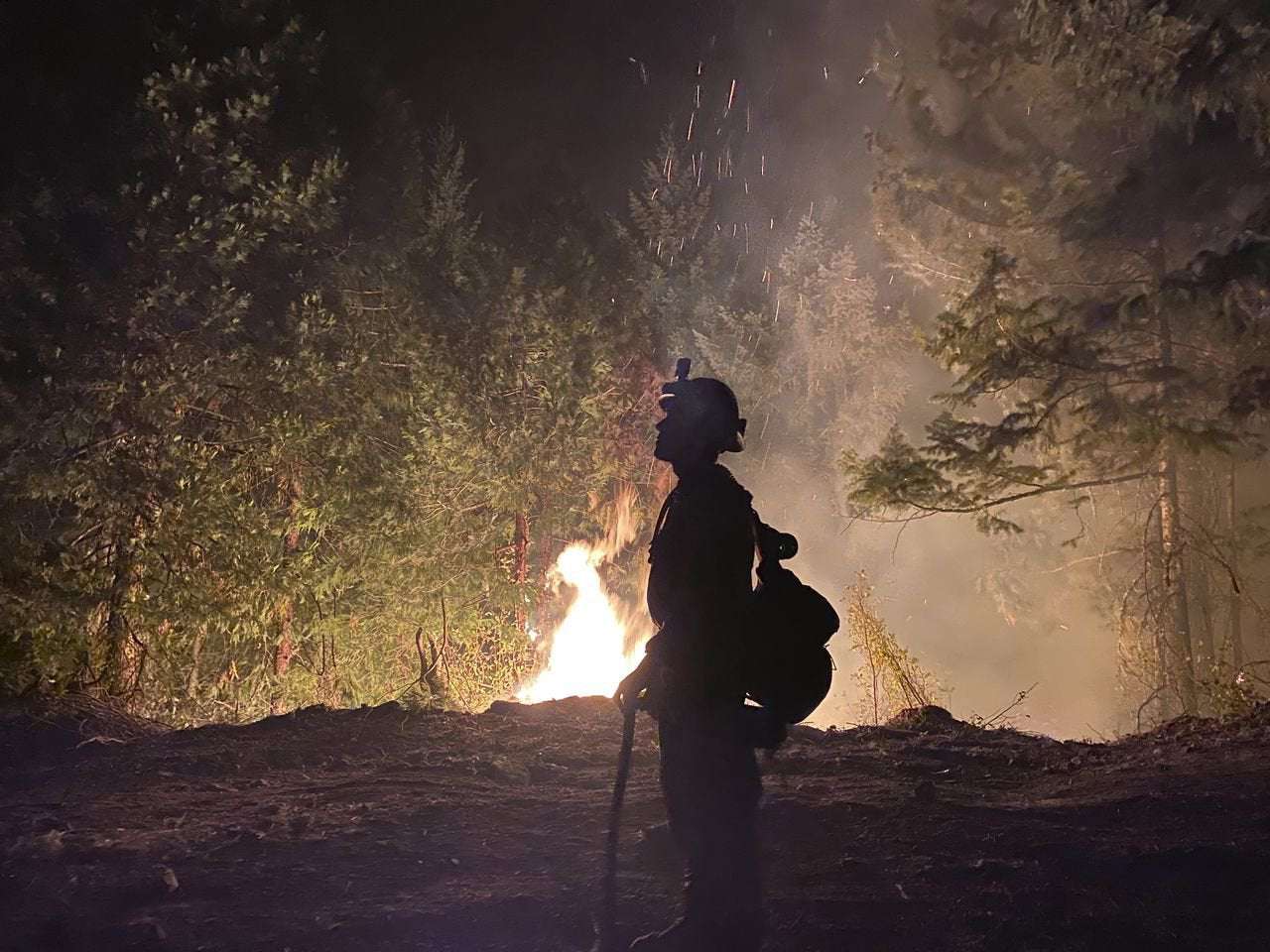Elkind is a smokejumper for the U.S. Forest Service based out of Redmond.
I would almost do it for free. The feeling of complete focus and calm after jumping out of the airplane is hard to find elsewhere these days. But the chaos from life and the fire below are making me rethink my career, and that’s a big problem for Oregonians.
I’ve been a smokejumper for the US Forest Service for eight years and worked on the Mt. Hood Hotshot Fire Crew before that. I grew up in Oregon and can’t stand to see the wildfires ravaging our public lands and communities, while the smoke threatens our public health.
The Forest Service employs the largest firefighting force in the west, yet the agency refuses to rise to the challenge of climate change and the growing demand that increased fires, short-staffing and low pay presents for our workforce.
Vacancies throughout the west limit our firefighting ability. Fire engines sit idle and unstaffed in many parts of our state, and the number of “Type-II” incident management teams – charged with managing large fires around the Northwest – has decreased from 10 to seven since 2014. The teams that remain are short-staffed and spread thin. This is the obvious outcome in a profession that I’ve never heard anyone recommend to their children.
As the cost of living and home prices rise in the west, the Forest Service can no longer retain its employees when starting pay is $13.45 an hour. At the Lincoln City McDonalds, just west of Otis, another community nearly erased from the map by wildfires, a sign in the window advertised starting pay is $15 an hour. My wife joked that I should apply there for more job security. She’s right. A career with McDonald’s is currently more promising than federal wildland firefighting.
I’m an incident commander with advanced qualifications, supervising dozens of resources and fire crews on fires, yet I’ve never earned more than $20 an hour in my 14 years as a professional wildland firefighter. I make decisions that can cost millions of dollars with lives hanging in the balance, yet I am paid more like a teenager working a summer job than a highly experienced professional. Last summer, I trained someone from Seattle Fire who earned more in two weeks than I earned in a 6-month fire season.
The cost of paying living wages to our firefighters pales in comparison to the costs that devastating wildfires have on our state. The costs in Oregon from the 2020 fires alone are well more than $1 billion, and that doesn’t include the mental toll it took on our citizens. My pregnant wife was home with our toddler duct-taping paper towels on a fan to try and filter the smoke, while I was working on the fire that would burn from Warm Springs past Detroit and towards Portland.
I’ve personally seen the experience level drop rapidly on fires over the past decade as people find work that is more predictable, safer, and affords them a better work/life balance. This leads to higher fire costs simply because we aren’t as experienced at fighting fire as we used to be. When training costs are so high, retention is paramount to fiscal responsibility.
Prescribed burns and hazardous fuels reduction are buzz words politicians and media use, but the reality is that there aren’t people willing to take on that dangerous job anymore at $13.45 an hour. The limiting factor is staffing.
Fire season in 2021 is now underway in the drought-stricken western U.S., yet there have been no policy changes at the firefighting level, or legislatively.
Talking about wildfires, climate change, prescribed burning is great. But our citizens and firefighting workforce demand action. I ask for your help, to demand a better investment of our money, and to preserve what parts of Oregon we have left for future generations.
Sign up for our free weekly Oregon Opinion newsletter. Email:

LiquidMotion on April 19th, 2021 at 03:01 UTC »
I interviewed for a job at a fire service in California. They wanted 4 years of mechanic experience and they were offering $15 an hour. I should have guessed that not putting the pay in the job ad would mean they knew no one would apply if they did.
TheWaystone on April 19th, 2021 at 02:41 UTC »
My dad was in wildland firefighting most of his life. It was hot, dangerous, backbreaking work. But it paid great. He now has firefighter's retirement too, with the USFS. Truly amazing benefits. Retired at 55. Those jobs and that pay no longer exist for most workers. Don't even ask me about his health insurance. But now? They have prisoners. They have workers from the reservation and clueless contractors who just need something.
The next few fire seasons are going to put all others to shame. And we have nothing for the people doing the work.
We're going to burn. Don't worry, the rich folks will be fine. The rest of us will lose everything.
obi-jawn-kenobi on April 19th, 2021 at 01:56 UTC »
Doesn't mean we should pay McDonald's workers less, it means fucking pay the firefighters more.